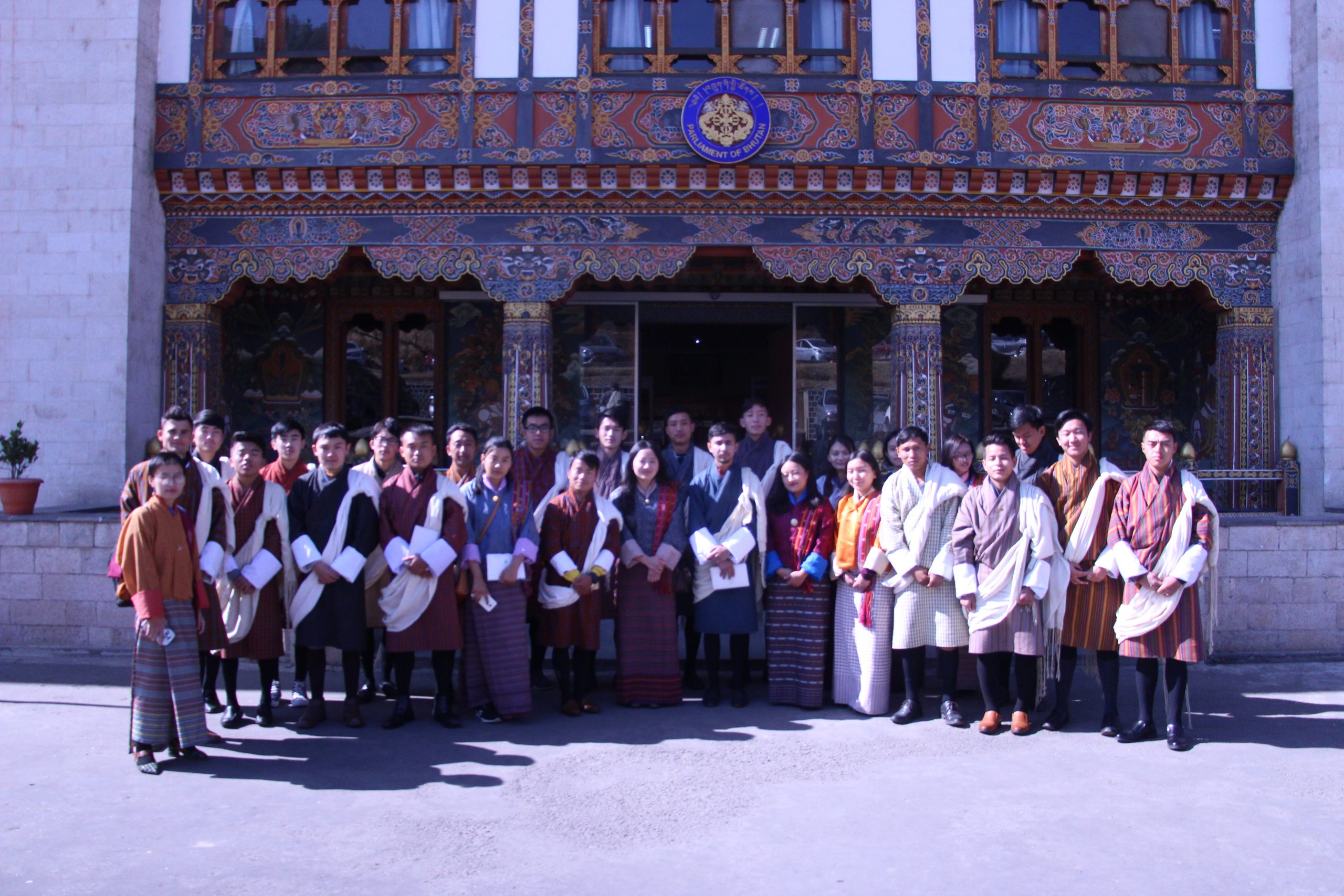
The 6-day winter Youth Initiative (YI) program brought together 24 youths, ranging in educational and age differentials together at the Media Lab to awaken their socio-political consciousness with a focus on policy research and review.
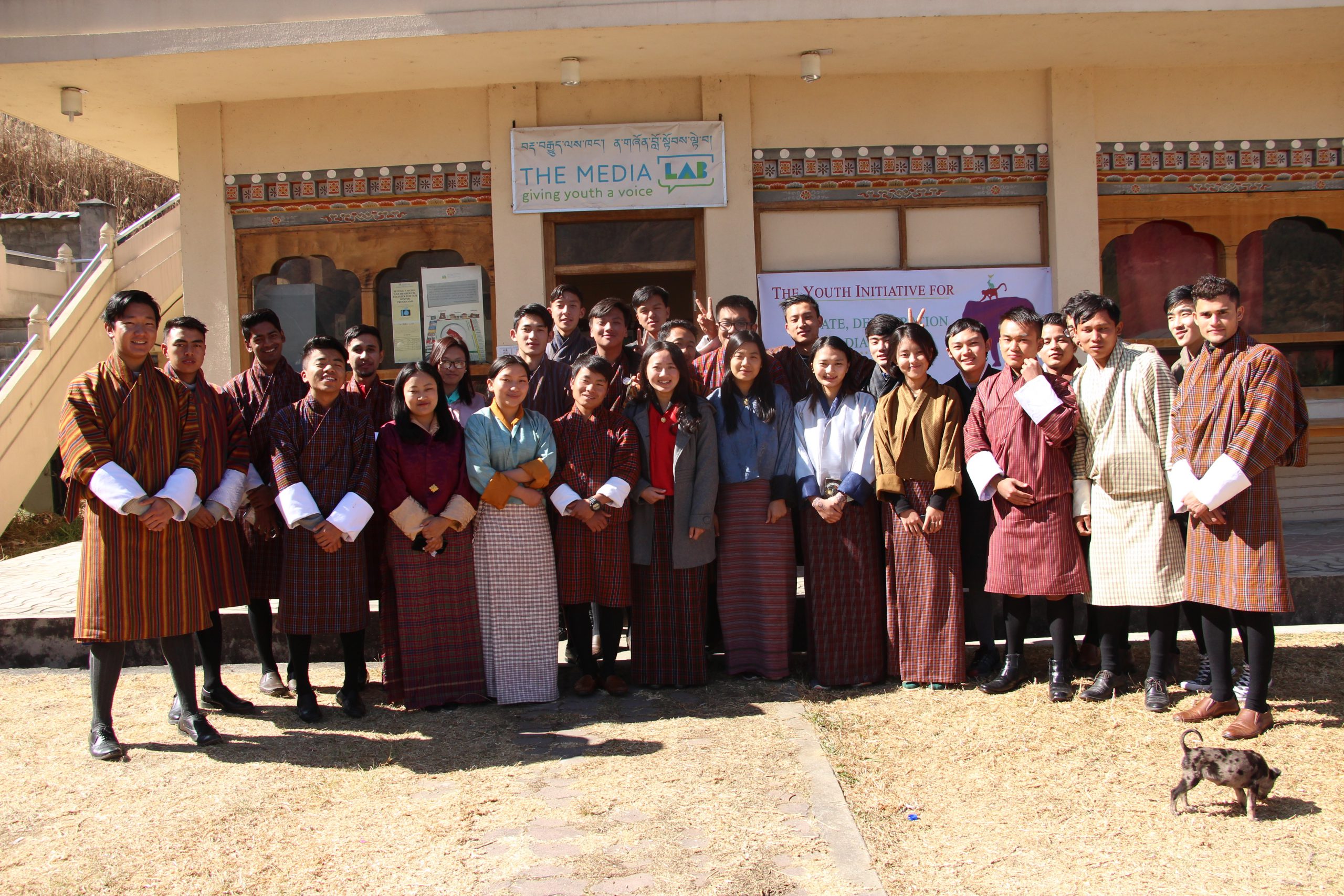
To this end, YI adopts the vision to create ‘An engaged society rooted in youth inclusion in policy making’, where youths can realize their roles as ‘stakeholders of national issues’ and be both highly motivated and competently skilled to become active citizens striving for positive change.

To this end, YI adopts the vision to create ‘An engaged society rooted in youth inclusion in policy making’, where youths can realize their roles as ‘stakeholders of national issues’ and be both highly motivated and competently skilled to become active citizens striving for positive change.
Taking suggestions for improvement from the past year’s reports regarding inadequate time for interpersonal connections and ice-breakers, the first half of the day was dedicated for ‘Name games’, ice-breakers and ‘Cross the line’ activity which helped create a safe space to spark their social consciousness. After that, a brief history of YI (including overall aims and goals) along with a training on their ‘Position Papers’ were given to define expectations right from the start.
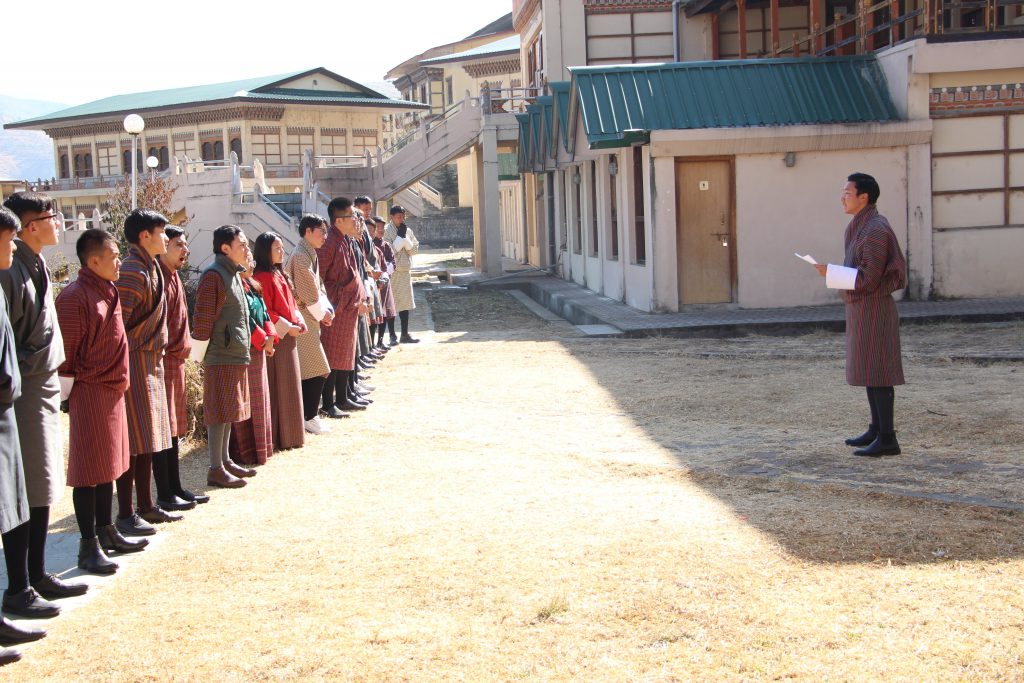
Leki Dawa, a social entrepreneur was invited to speak, who intimately tied his own hardship experiences with policy and the need to step out of the shadow to speak one’s mind to policy-makers. The ‘Generation waking up’ video helped facilitate reflections on their generation including challenges and opportunities available. The day ended with a debrief session discussing most important takeaways and division of responsibilities for the duration of their stay to keep the lab neat and clean.
Day two began with a session by former member of the National Council from Gasa district, Dasho Sangay Khandu on the broad structure of our democracy as well as its unique qualities compared to other democracies around the world. Next, we delved into our Constitution, its importance and how it delineates seperation of power with particular emphasis on provisions that guarantee free health care and education. Next we discussed how policy fit and work within the constitutional limits and how it allows citizens (especially youths) to participate effectively. Examples of school nutrition, car imports, fuel and smoking ban were stated to demonstrate this.
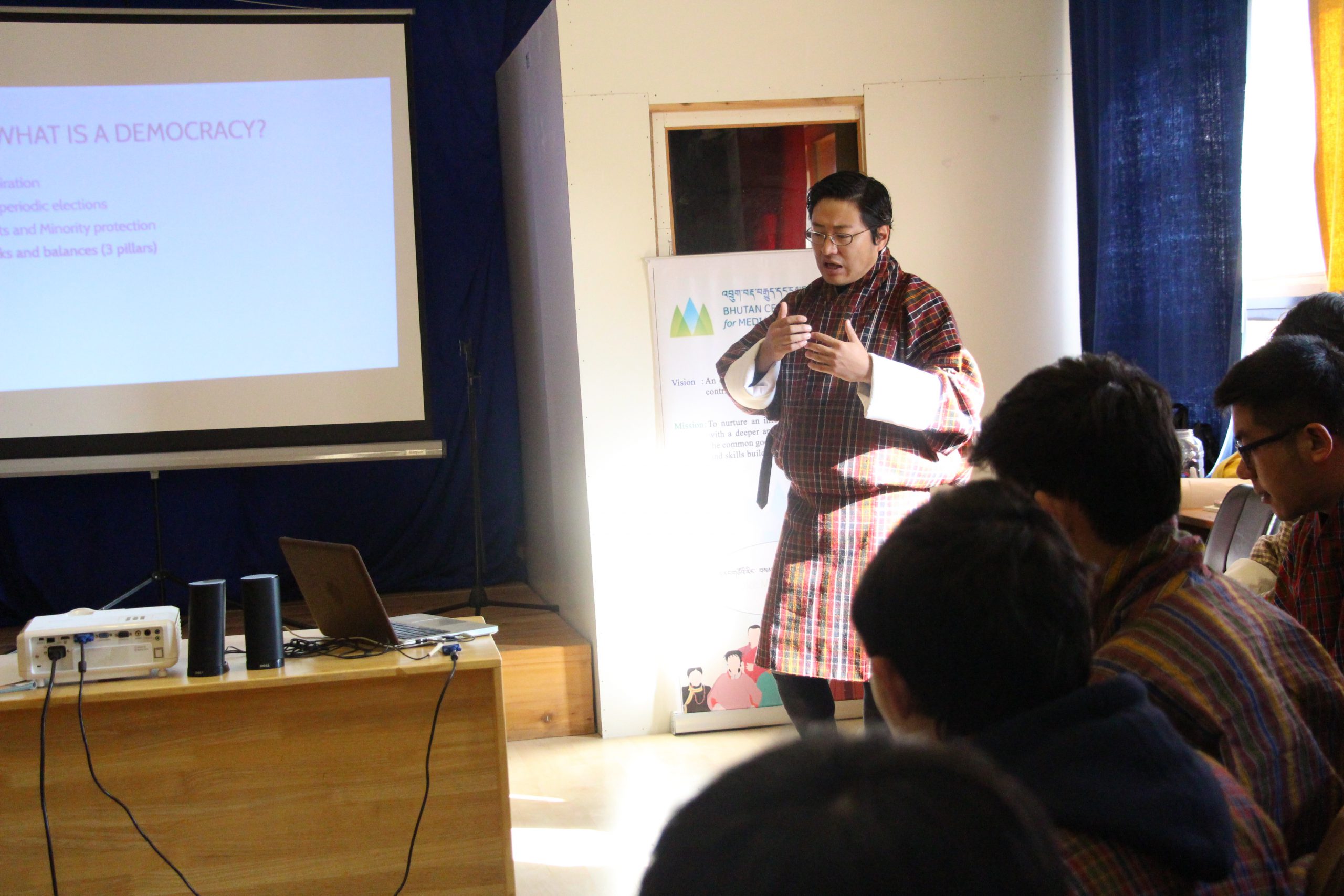
Lekey Wangdi from Helvetas/Gross National Happiness Commission (GNHC) came to speak about the policy process (adoption & implementation) as it relates to GNHC as the apex planning body of the government. Particular focus was given to youth and the vast opportunities that are present in local development and governance with 50% of development budget going to the local government. The Youth Mentors (also members of the Steering Committee) came to speak about their experience with YI and their social initiatives taken an active citizens. The day ended with a movie, ‘The motorcycle diaries’ which is a personal journey into the life of Che Guevara and his social awakening.

Leki Dawa, a social entrepreneur was invited to speak, who intimately tied his own hardship experiences with policy and the need to step out of the shadow to speak one’s mind to policy-makers. The ‘Generation waking up’ video helped facilitate reflections on their generation including challenges and opportunities available. The day ended with a debrief session discussing most important takeaways and division of responsibilities for the duration of their stay to keep the lab neat and clean.
Day two began with a session by former member of the National Council from Gasa district, Dasho Sangay Khandu on the broad structure of our democracy as well as its unique qualities compared to other democracies around the world. Next, we delved into our Constitution, its importance and how it delineates seperation of power with particular emphasis on provisions that guarantee free health care and education. Next we discussed how policy fit and work within the constitutional limits and how it allows citizens (especially youths) to participate effectively. Examples of school nutrition, car imports, fuel and smoking ban were stated to demonstrate this.

Lekey Wangdi from Helvetas/Gross National Happiness Commission (GNHC) came to speak about the policy process (adoption & implementation) as it relates to GNHC as the apex planning body of the government. Particular focus was given to youth and the vast opportunities that are present in local development and governance with 50% of development budget going to the local government. The Youth Mentors (also members of the Steering Committee) came to speak about their experience with YI and their social initiatives taken an active citizens. The day ended with a movie, ‘The motorcycle diaries’ which is a personal journey into the life of Che Guevara and his social awakening.
Dr. Kezang Sherab, a researcher/lecturer from Paro College of Education was called upon to speak about research and its context within Bhutan. Different approaches of research and methods of reviewing literature as it relates to policy was also discussed. He encouraged participants to take up qualitative research and use semi-structured interview format given the shortage of time and resources to conduct a large-scale research.
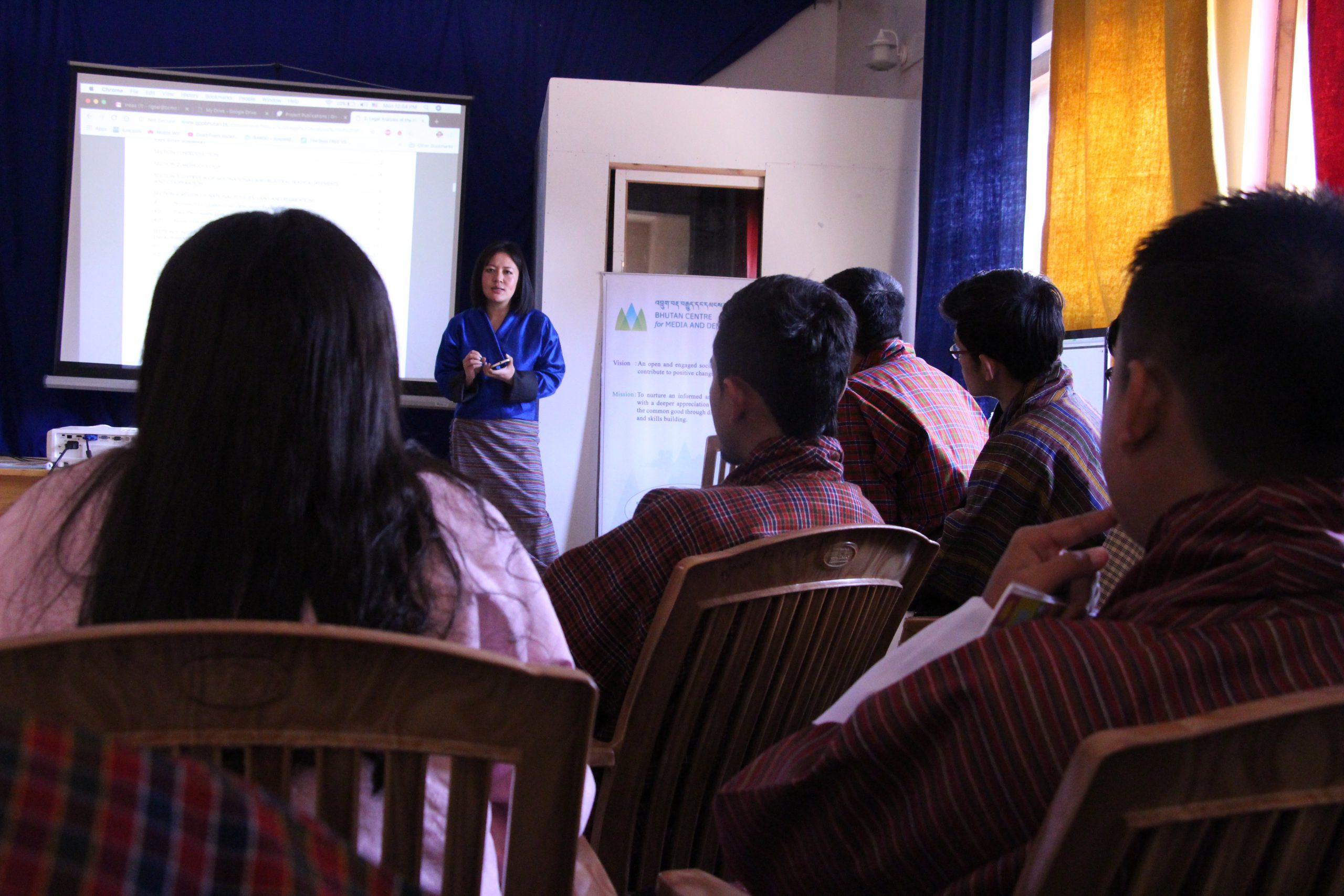
Pem Lama who was on a 2-year project for Green Public Procurement in Bhutan was also called upon to speak about how research, policy and project is intimately tied together to promote sustainable consumption patterns. Tashi Dema, a reporter from Kuensel, spoke about the ground realities of policy as it is formulated by policy-makers and the gaps that exist when implemented in reality. She spoke about Alcohol policy, Plastic ban, Tobacco Act, BICMA’s recent switch to digital TV service, wage rate and media freedom. The day ended with a session by Aum Pek on significance and impact of listening actively to one another, followed by a movie about the importance of perspectives. Day four began with a trip to the Parliament where the parliamentarians were deliberating on public accounts. We received a presentation from the Director of Parliament on the bodies of government along with the separation of powers within the house along with its functions.
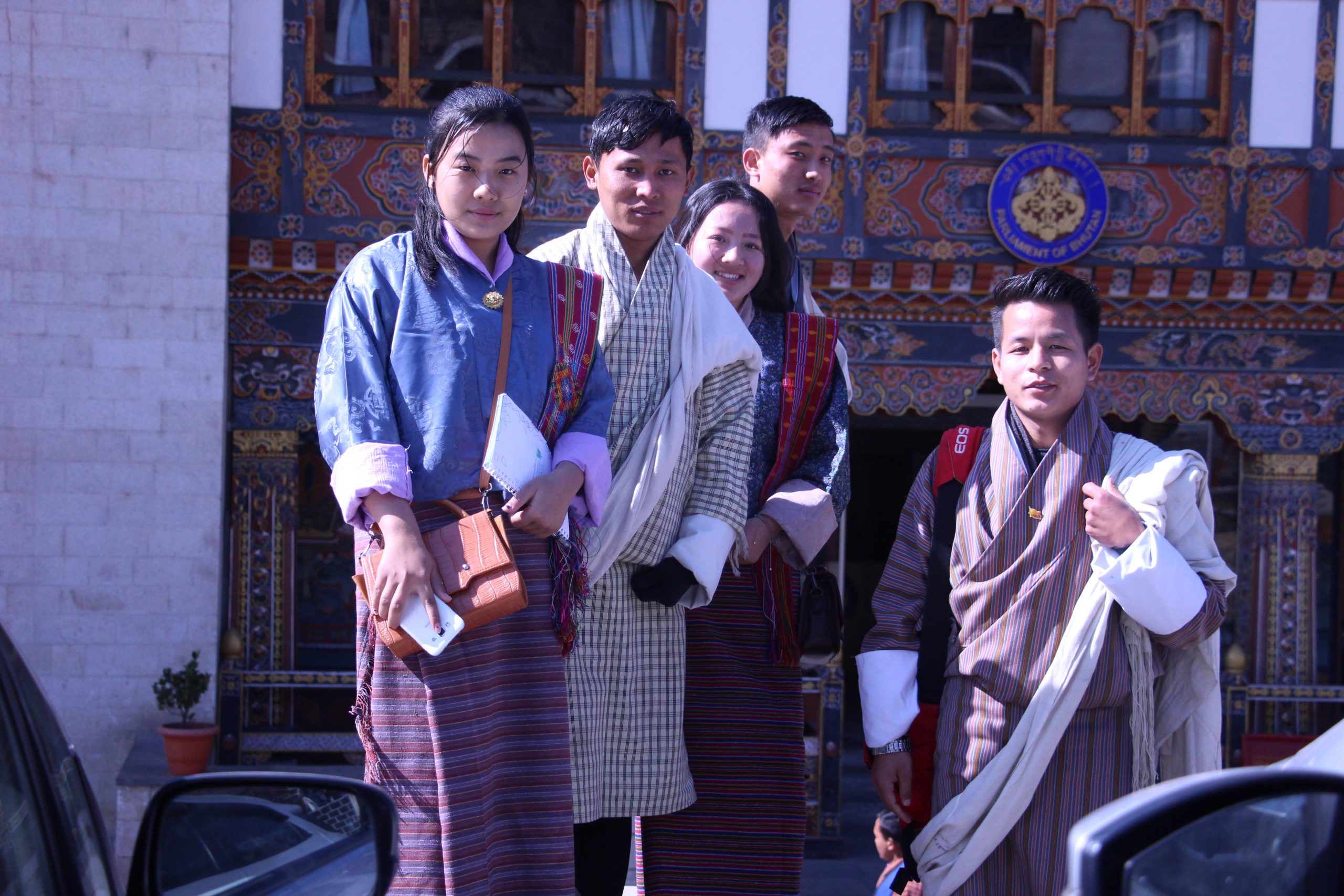
The remainder of the day was spent applying research theories from the previous day including its direct relevance to their position papers; Dr. Kezang facilitated discussion on identification of issues and helped guide the participants in the various methods of policy analysis to be used for their particular interest issue area. He also helped frame, pitch and test the viability of their research questions. The issues that came up were:

Pem Lama who was on a 2-year project for Green Public Procurement in Bhutan was also called upon to speak about how research, policy and project is intimately tied together to promote sustainable consumption patterns. Tashi Dema, a reporter from Kuensel, spoke about the ground realities of policy as it is formulated by policy-makers and the gaps that exist when implemented in reality. She spoke about Alcohol policy, Plastic ban, Tobacco Act, BICMA’s recent switch to digital TV service, wage rate and media freedom. The day ended with a session by Aum Pek on significance and impact of listening actively to one another, followed by a movie about the importance of perspectives. Day four began with a trip to the Parliament where the parliamentarians were deliberating on public accounts. We received a presentation from the Director of Parliament on the bodies of government along with the separation of powers within the house along with its functions.

The remainder of the day was spent applying research theories from the previous day including its direct relevance to their position papers; Dr. Kezang facilitated discussion on identification of issues and helped guide the participants in the various methods of policy analysis to be used for their particular interest issue area. He also helped frame, pitch and test the viability of their research questions. The issues that came up were:
- Cows consuming plastic
- No exams for class PP-III
- Recycling plastic for roads
- Quality of education in Central schools
The second last day of winter YI began by developing their public speaking and presentation skills. Here, Dasho Sangay touched on tips, general good practice in public speaking and followed it up with a practice session where the participants delivered a public speech on a topic of their interest. This was done to prepare them for the next day when they have to deliver a presentation of their interest topic to the youth mentors.
Next, we went on a field trip to National Statistical Bureau where they spoke about their role in facilitating data driven decision making along with pointers towards resources as it pertains to their position papers. They also supplied us with hard copies of some of their important publications that offer primary and some secondary data on the important sectors of the country.
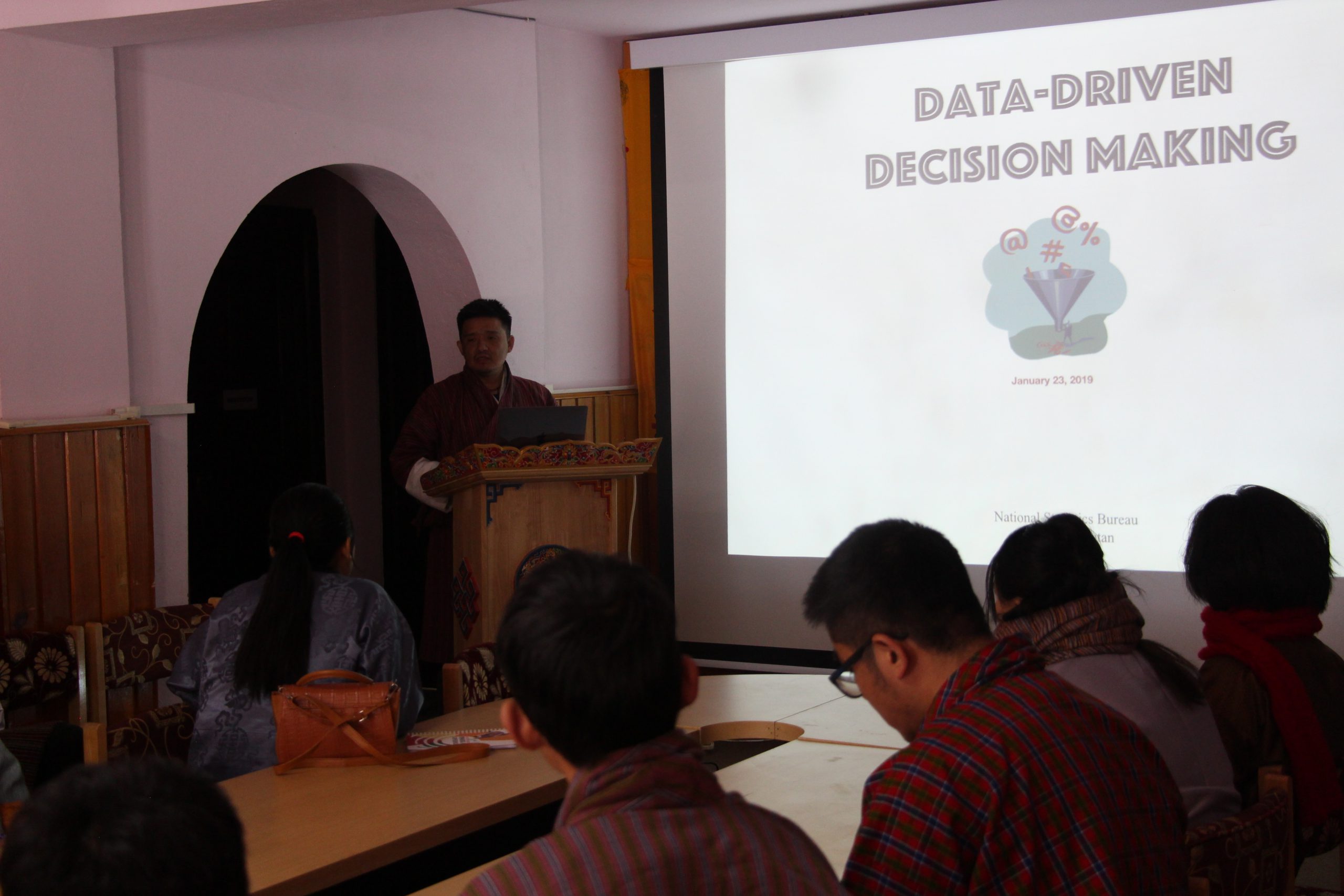
The remainder of the day was spent brainstorming their individual position paper topics. Some of the issues that emerged during the discussion were around concerns of women, alcohol, financial awareness, counselling in schools and quality of mental health services. We gave each other feedback so that participants can begin to understand how to select their topics. With this knowledge, groups were then formed based on their geographic proximity (keeping precedence from the past where this group structure has worked better), which led to the selection of the following issue topics:
The final day of the winter YI focused on charting the way forward to set clear and measurable milestones; A session was given on the functions of the YI Steering Committee in capacity as mentors, strategic planners of YI’s direction and accountability partners in ensuring the utilization of project funds. Next, the participants delivered their group presentations to the Youth mentors and the mentors selected which group and issue they wanted to associate themselves with. The mentors’ decision was based on their own interests coupled with their past experience / contacts in the issue area.
Next, we went on a field trip to National Statistical Bureau where they spoke about their role in facilitating data driven decision making along with pointers towards resources as it pertains to their position papers. They also supplied us with hard copies of some of their important publications that offer primary and some secondary data on the important sectors of the country.

The remainder of the day was spent brainstorming their individual position paper topics. Some of the issues that emerged during the discussion were around concerns of women, alcohol, financial awareness, counselling in schools and quality of mental health services. We gave each other feedback so that participants can begin to understand how to select their topics. With this knowledge, groups were then formed based on their geographic proximity (keeping precedence from the past where this group structure has worked better), which led to the selection of the following issue topics:
- Mobile data affordability (Chhukha Group)
- Effectiveness of providing free school facilities (Sherubtse Group)
- Support for recycled products (Thimphu+Paro Group)
- Nutritional value of food in boarding schools (Samtse Group)
- Educational level and Plastic bag usage (Punakha Group)
The final day of the winter YI focused on charting the way forward to set clear and measurable milestones; A session was given on the functions of the YI Steering Committee in capacity as mentors, strategic planners of YI’s direction and accountability partners in ensuring the utilization of project funds. Next, the participants delivered their group presentations to the Youth mentors and the mentors selected which group and issue they wanted to associate themselves with. The mentors’ decision was based on their own interests coupled with their past experience / contacts in the issue area.